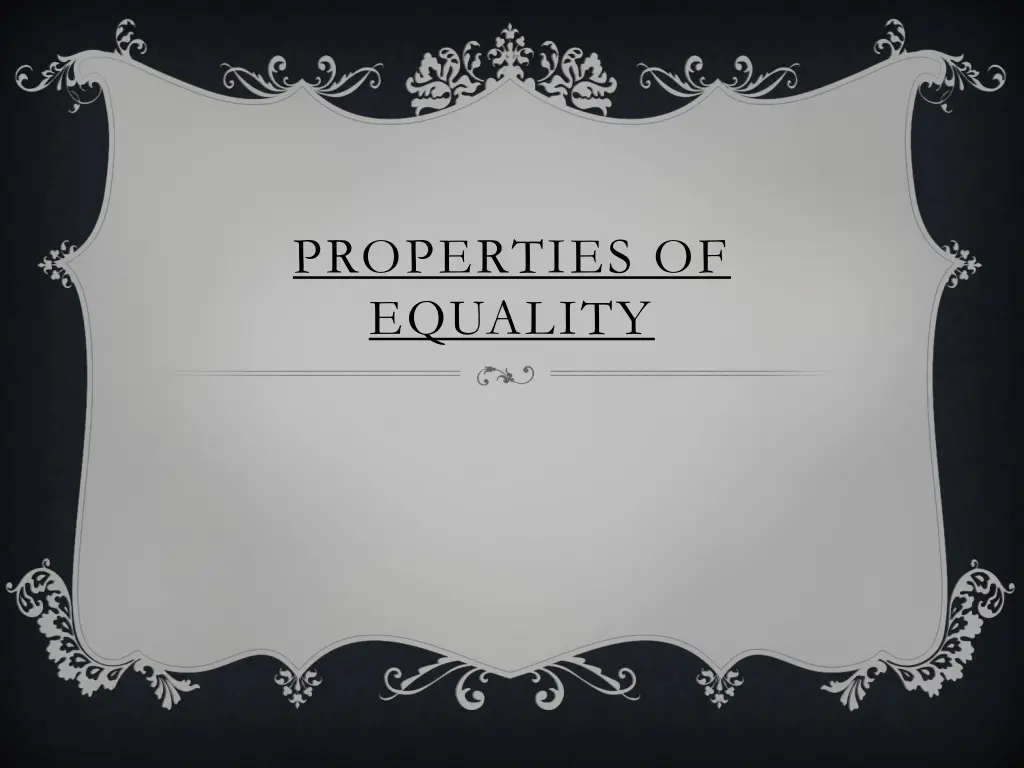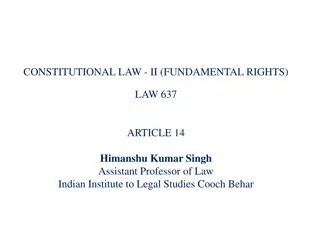
Properties of Equality and Operations
Discover the fundamental properties of equality, including reflexive, symmetric, transitive, addition, subtraction, multiplication, substitution, and more. Learn how these properties apply to mathematical operations like addition, multiplication, and distribution.
Download Presentation

Please find below an Image/Link to download the presentation.
The content on the website is provided AS IS for your information and personal use only. It may not be sold, licensed, or shared on other websites without obtaining consent from the author. If you encounter any issues during the download, it is possible that the publisher has removed the file from their server.
You are allowed to download the files provided on this website for personal or commercial use, subject to the condition that they are used lawfully. All files are the property of their respective owners.
The content on the website is provided AS IS for your information and personal use only. It may not be sold, licensed, or shared on other websites without obtaining consent from the author.
E N D
Presentation Transcript
PROPERTIES OF EQUALITY
REFLEXIVE A thing equals itself. A=A
SYMMETRIC Equality is symmetric. If X = Y, then Y = X.
TRANSITIVE The syllogism property. If X = Y AND Y = Z, then we can remove the middle man and X = Z.
ADDITION The addition property states that you can add whatever to an equation without changing the equality as long as you add the same thing to both sides.
SUBTRACTION The subtraction property states that you can subtract whatever from an equation without changing the equality as long as you subtract the same thing on both sides.
MULTIPLICATION The multiplication property states that you can multiply an equation by whatever, as long as you multiply the same thing on both sides.
SUBSTITUTION If two things are equal, then they can be substituted for one another without harm.
PROPERTIES OF ADDITION AND MULTIPLICATION
COMMUTATIVE Both addition and multiplication are commutative, in that order does not matter. A+B=B+A and AB=BA.
ASSOCIATIVE Both addition and multiplication are associative, in that grouping does not matter. A+(B+C)=(A+B)+C and A(BC)=(AB)C.
DISTRIBUTIVE Multiplication can be distributed over addition in the following manner: A(B+C)=AB+AC.
ADDITIVE IDENTITY The identity value for addition is zero, in that adding it to any quantity does not change that quantity.
ADDITIVE INVERSE The additive inverse of any number A is the number that, when added to A, will result in the additive identity.
MULTIPLICATIVE IDENTITY The identity value for multiplication is one, in that multiplying it by any quantity will not change that quantity.
MULTIPLICATIVE INVERSE The multiplicative inverse of any number A is the number that, when multiplied by A, will result in the multiplicative identity.






















